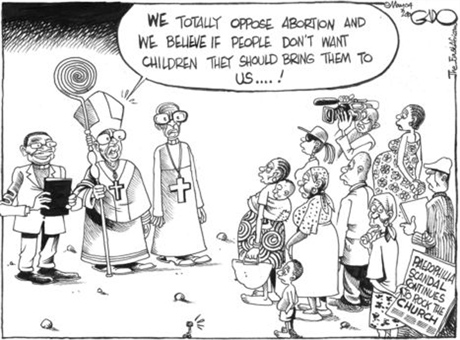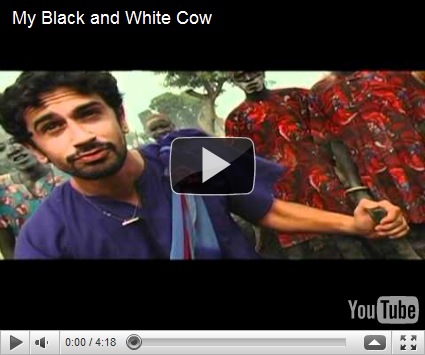watta satta, which often involves a brother-sister pair marrying another such pair from a second household, comes with mutual threats: A husband who treats his wife badly can count on his brother-in-law doing the same to his sister. That mechanism allows two sets of parents to have leverage over how their daughters are treated.World Bank Working Paper 4126, soon to be in the American Economic Review
28 September 2024
If you beat my sister, I’ll beat yours
27 September 2024
Highlights from MDG Week
New post on the IPA blog.
(also a quick poll - do people like getting links to posts at IPA like this? Or should I post the whole thing here? Or post nothing and let you find it yourself over there?)
25 September 2024
The Missing Millenium Children
5 years ago the Guardian started tracking a child born in 10 different African countries as part of its MDG coverage. It caught up with them all this year. Except the Southern Sudanese child. Who died before reaching his 1st birthday. Along with the other 1 in 7 Southern Sudanese kids who don’t make it to five. Damn.
The Economics of Marmite?
people often retain very strong preferences for the kinds of food they grew up eating. Just ask the expatriate Britons who flock to “Tea and Sympathy” in New York’s Greenwich Village for pots of Marmite, a yeast-based spread whose delights baffle other nationalities (and many of their own compatriots).
So what you might say? Well,
the effects of habit formation in consumption may also lead economists to rethink the way they calculate the gains from trade. This is because opening up to trade is in some ways akin to migrating. It changes the composition and prices of the goods that are available to a person. In particular, it can raise the relative prices of the goods that a region or country has a comparative advantage in, such as crops that the country’s climate or soil favour. These are the things that would have been relatively cheap and common in a closed economy and therefore the things that people might have acquired a taste for. To the extent that such preferences persist, people will benefit less from the increased variety of goods and altered relative prices that trade brings about than they would do if habits were not a significant determinant of consumption.
And the bottom line: for internal migrants within India:
As a consequence, migrant families consume fewer calories per rupee of food expenditure than non-migrants do.
That is fine Mr. Economist journalist, but how much fewer? 50 percent fewer calories? 0.00004 percent fewer calories? Don’t magnitudes matter? For that I had to go to the original paper by David Atkin.
holding total food expenditure constant, there will be an average caloric loss of 2.7 percent coming from the correlation between tastes and price changes (about 54 calories per person per day) … In geographic terms, the negative caloric impacts that come from tastes correlating with price changes will not be spread uniformly across India … with poorer regions more likely to suffer caloric losses on the consumption side, with predicted caloric losses of 20 percent in some of the poorest regions.
So yeah then, er, 20 percent is pretty big.
I’d better go pack some marmite in my suitcase.
24 September 2024
On healthcare and luck
Just in case you were concerned about media freedom in Uganda….
The ruling National Resistance Movement has concluded its primaries, in an exercise that was shambolic and the true antithesis of popular democracy.
Election theft, violence, manipulation, intimidation and avarice are NRM’s “winning” strategy, which saw them they effectively used in the past two elections. Now Uganda is stuck with shameless leaders who will lie and tell cynical jokes at their own rape on democracy.
From the East African, my favourite newspaper in Africa.
An argument I’ve heard Paul Collier make in the past is that small countries don’t have a large enough market for specialised business/economics reporting, and so have weak accountability on economic policy. The East African, part of the Kenyan Nation Media Group, tackles this problem by covering the EAC states Kenya, Uganda, Tanzania, Rwanda, and Burundi, plus bits of Eastern DRC, Somalia, and Southern Sudan, a combined population of about 150 million people.
They also have an awesome cartoonist. Here is Gado on the catholic church. Dark.

Probably the best Economist-Priest in Juba
The vision of Jesuit priest Michael Schultheis, the [Catholic University of Sudan] just started its third year. "We're about a month late starting classes," said Father Schultheis who has a Ph.D. in economics from Cornell. "That's because we had to find a new location."
22 September 2024
Transparent Impacts?
New post up on the IPA blog.
18 September 2024
More Awesome News from the (non-)nation of Somaliland
Monty Munford thinks that Somaliland, not content with democratic elections and biometric passports, is also likely to become the first nation to become a cashless society, due to expansion in mobile money transfers and retail payments.
He also throws in these tidbits:
“For every dollar there are almost 17,000 Somaliland Shillings”
“The state itself runs on a budget of only $40 million dollars”
“competition between the country’s carriers means calls from Somaliland are five to six times cheaper than other African countries.”
I really have to go visit.
17 September 2024
Why DFID should still give aid to "India"
3. Because India is so big, we don’t have to worry so much about aid distorting the economy, or government accountability to citizens, or government spending decisions. The government (and the economy) don’t even notice. But those poor individuals certainly do.
12 September 2024
Have your development cake and eat it too
So, British public, you think that it is morally right to for the UK to help developing countries, but you don’t want to spend any money on it?
Well, apologies for sounding like a broken record at times, but:
Good news!
Some of the best things in life are free (almost). Like allowing poor people access to our labour market and our consumer market. Or lobbying to end those EU farm subsidies. Or backing our firms to take risky but potentially profitable (and beneficial for the host country) ventures overseas.
Plus we can make the aid money we do spend go further by spending it on things with PROVEN IMPACT. DeWorm the World would be a good place to start, but more to come soon from IPA on other proven ideas.
11 September 2024
Rumbek Rocks
10 September 2024
The market for prostitute-lemons
Put together, these issues imply that there is a potential market for lemons problem between famous men and prostitutes. Fearing that prostitutes might sell their stories, men will tend - at the margin - to avoid them. This will reduce demand even for good prostitutes, who in turn might withdraw from prostitution into near-substitute professions such as acting, modelling or PR. The upshot will be a sub-optimally thin market. In this sense, Ms Thompson's behaviour has potentially serious consequences.
Made me laugh.
09 September 2024
From the annals of weird aid
There are two ambulances parked outside of the Ministry of Health in Accra.
Donated by the Government of…..wait for it…..
the Islamic Republic of Iran.


